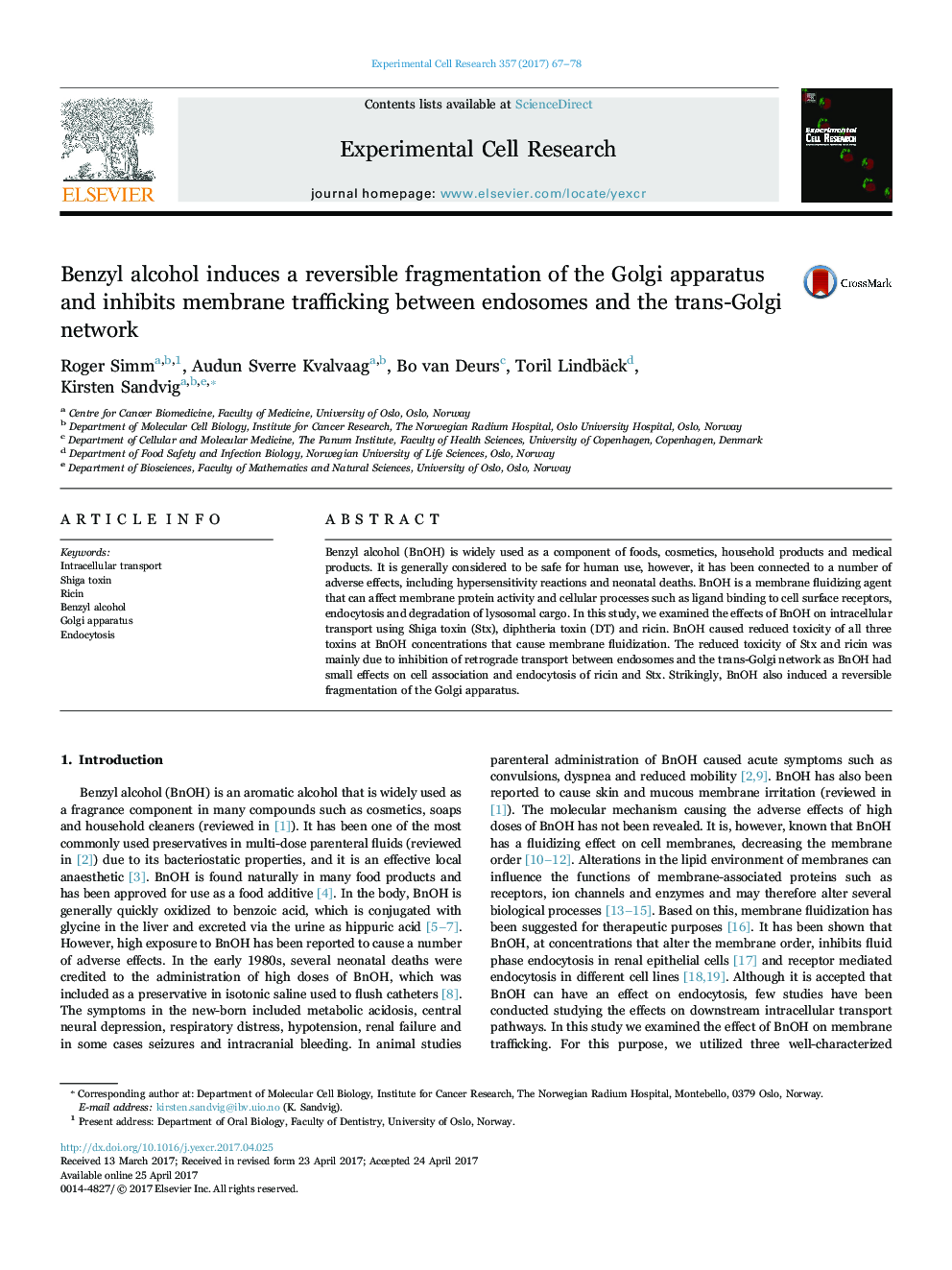| Article ID | Journal | Published Year | Pages | File Type |
|---|---|---|---|---|
| 5526886 | Experimental Cell Research | 2017 | 12 Pages |
â¢Benzyl alcohol inhibits retrograde traffic from endosomes to the trans-Golgi network.â¢Benzyl alcohol induces fragmentation of the Golgi apparatus.â¢Reduced toxicity of Shiga toxin, and ricin in benzyl alcohol treated cells.â¢The toxic effect of diphtheria toxin is decreased in benzyl alcohol treated cells.â¢The number of acidic compartments is reduced by benzyl alcohol.
Benzyl alcohol (BnOH) is widely used as a component of foods, cosmetics, household products and medical products. It is generally considered to be safe for human use, however, it has been connected to a number of adverse effects, including hypersensitivity reactions and neonatal deaths. BnOH is a membrane fluidizing agent that can affect membrane protein activity and cellular processes such as ligand binding to cell surface receptors, endocytosis and degradation of lysosomal cargo. In this study, we examined the effects of BnOH on intracellular transport using Shiga toxin (Stx), diphtheria toxin (DT) and ricin. BnOH caused reduced toxicity of all three toxins at BnOH concentrations that cause membrane fluidization. The reduced toxicity of Stx and ricin was mainly due to inhibition of retrograde transport between endosomes and the trans-Golgi network as BnOH had small effects on cell association and endocytosis of ricin and Stx. Strikingly, BnOH also induced a reversible fragmentation of the Golgi apparatus.
